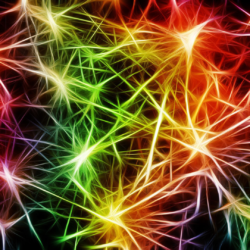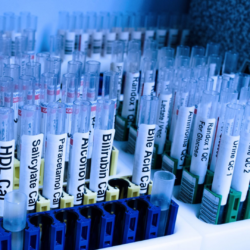An overview of Cannabis and Cannabinoids
For over 1500 years, cannabis plants have been used by civilizations as sustainable ways to aid discomfort and other issues. In fact, it was discovered within the Chinese pharmacopeia that marijuana as listed as a way to treat numerous conditions. It should come as no surprise then that this plant is currently gaining a huge wave of support. People across the world are turning to cannabis to help improve health, alleviate stress, or simply enjoy a better life. Today, we’ll dive into one of the newest parts of the cannabis plant to hit the market, HHC.
Cannabis plants are made up of compounds a.k.a cannabinoids. The first cannabinoid to be found was discovered from the “Cannabis Sativa” – hemp plant. Today, there have been over 60 cannabinoids discovered, identified, and characterized structurally. Known as phytocannabinoids, the most popular is Delta-9 tetrahydrocannabinol or Delta-9 THC. Other phytocannabinoids include Cannabinol (CBN) and Cannabidiol (CBD).
People consume these cannabinoids in a vast variety of forms. The history of cannabinoid research dates back to the 1940s and 1950s. As more research continued to shine light on phytocannabinoids and how they work, it became clearer that the effect was dependent on the underlying chemical structure. It also became clear that the way cannabis works in the body has to do with receptor binding.
As chemical compounds, cannabinoids are a structurally broad family containing compounds that possess a large number of biological targets. These cannabinoids can be classified into three groups based on origin:
- Phytocannabinoids
- Endocannabinoids
- Synthetic cannabinoids
Cannabinoid Groups
Phytocannabinoids exist naturally within the leaves, flowers, and seeds of the cannabis plant. They also form within the resin released by the female cannabis plant. Endocannabinoids are naturally occurring within the human body and function as intercellular lipid messengers. On the other hand, synthetic cannabinoid receptor agonists are a large family of synthetically-created cannabinoids. They act similarly to Delta-9 THC but are sometimes more effective.
The first set of cannabinoid receptors were discovered in the late 1980s. Today, there are two main cannabinoid receptor types – CB1 and CB2. Both CB1 and CB2 receptors are G-protein coupled receptors. However, they are significantly different in their distribution and pharmacological effects.
CB1 and CB2 Receptors

On the one hand, Cannabinoid type receptors (CB1) are mostly found within the brain, spinal cord, and peripheral nervous system. CB1 receptors do appear in a few organs throughout the body, but are highly concentrated in the brain & nervous system. These receptors are not within the medulla oblongata in the brain, which is responsible for maintaining cardiovascular and respiratory functions within the body. CB1 receptors also appear to be responsible for inducing the euphoric and anticonvulsive effects of cannabis.
On the other hand, CB2 receptors are primarily within the immune system or within immune derived cells like leukocytes. These receptors could also improve the release of cytokines and may be responsible for therapeutic and anti-inflammatory effects cannabis may to have. The activation of the CB2 receptor does not cause any lingering psychological effects. Basically, if a product effects CB2 receptors, it won’t cause a high- think CBD. Cannabinoids that impact CB2 receptors are popular subjects for their therapeutic properties.
Today, Delta-9 THC, Delta-8 THC and CBD have been made into a vast product range used by millions across the country and even more people across the world. But as scientists continue to dive into the ever-increasing world of cannabinoids, it is clear that more cannabinoids will make an appearance, sooner than later.
This brings us to the latest cannabinoid on the scene – Hexahydrocannabinol (HHC).
SHOP PREMIUM HHC GUMMIES HERE!
Introduction to HHC
As the cannabis industry continues to grow, researchers are understanding more about the complex composition that makes up cannabis including more details into its underlying chemical compositor – cannabinoids. Today, the industry continues to move away gradually from the more mainstream D9 THC and CBD and embracing the more alternative cannabinoids.
Some examples of this include THC-O, THCP as well as Delta-8 THC and D10 THC. But the latest cannabinoid on the stage now is Hexahydrocannabinol (HHC). But what is HHC? What is its chemical composition and what makes it any different from any of the other cannabinoids found within a cannabis plant?
Exploring HHC
Hexahydrocannabinol or HHC for short is a semi-synthetic cannabinoid. A distinct element to HHC is the fact that it is hydrogenated when its counterpart – THC isn’t. In fact, HHC is an hydrogenated version of THC.
Hydrogenation is a straightforward process that occurs when a chemical reaction between an active compound and hydrogen occurs. When this happens, the molecular weight and molecular geometry of the compound shifts and the compound becomes more stable. It also has a higher resistance to heat and possesses an extended shelf life.
Although research into HHC is still new, we have prepared this article to contain everything you need to know about the exciting new cannabinoid. HHC can exist in very, very small amounts naturally in cannabis. However, it is typically synthetically produced in a lab because of how minute the natural amount is.
What’s Different About HHC?
Known as the Armageddon-ready cannabinoid, HHC seems to be more resilient than abundantly naturally-occurring THC. Its underlying molecular structure sheds more light on why this may be. To begin, HHC does not suffer from oxidation and breakdown the way THC does. This is because of its saturation with hydrogen, making it stronger than THC. This is further highlighted by this comparative study, where THC was shown to be one of the least stable cannabinoids. During the oxidizing process, THC loses its hydrogen atoms before forming two new double bonds. When this occurs, THC takes on another identity – CBN.
This is a reason why old weed often contains high amounts of CBD as THC slowly breaks down over time. According to research, CBD could be synthesized and made into numerous HHC isomers and other related derivatives. CBD’s conversion to HHC is one that does not happen often naturally.
However, scientists have discovered how to synthesize HHC from naturally occurring cannabinoids, thus allowing them to bring it to market.
Types of HHC
In the year 2007, the department of Hygienic Chemistry, Hokuriku University shared a particularly exciting study of HHC. Within this study, they show that CBD has the potential to convert into HHC and Delta-9 THC. Scientists made use of cutting-edge gas chromatography mass spectrometry (GC-MS) to identify and name two forms of HHC:
- 9α-hydroxyhexahydrocannabinol (9α-OH-HHC) and
- 8-hydroxyiso-hexahydrocannabinol (8-OH-iso-HHC)
So far, we know of at least 10 variants of HHC. Some occur naturally while the more common ones happen to be made within the lab. Here are two examples of synthetic HHC:
- HU211 which stands for 1,1-Dimethylheptyl-11-hydroxytetrahydrocannabinol, and
- HU243, aka 11-Hydroxy-3-(1′,1′-dimethylheptyl)hexahydrocannabinol
In 2015, Vol. 117 of the Phytochemistry Journal highlighted 9 minor oxygenated cannabinoids that were discovered within high potency cannabis strains. Of the 9, four were hexahydrocannabinoids (HHC). Upon further testing for antileishmanial, antimalarial and antimicrobial properties, the researchers did find that some of the new compounds held resistance against certain malaria and bacteria.
Shop HHC Tinctures made with premium ingredients here! 750mg HHC each.
An In-Depth Look Into HHC
It is important to state that at the moment, research is still ongoing in order to figure out HHC in its entirety. At the moment, most of the research available is based off animal studies. Considering HHC’s status as a new cannabinoid, its long- or short-term effects aren’t known with 100% certainty.
With that in mind, let’s explore some of information about the synthetic cannabinoid backed by science today.
It could possess beneficial effects for sleep or discomfort:

Within a 2007 study, they reveal that HHC could possess some discomfort-relieving properties. The research team at Hokuriku tested two forms of HHC on mice. Their results showed that HHC brought about a longer sleeping time and it could also inhibit the feeling of discomfort.
Researchers are exploring other possibilities:
Within a study published in 2011 by the European journal of Pharmacology on two HHC analogs – LYR-7 and LYR-8, the question was raised if HHC may impact/slow the growth of tumorous cells and angiogenesis, which is a key step in tumor growth. This is not a medical claim by us on any front and more research is necessary on the subject, but it’s interesting to note how many things scientists are looking at HHC for.
More evidence on the properties of HHC came to light via a lead chemist by the name of Mark Scialdone. Within his two patents, the data suggested that Hexahydrocannabinolic Acid (HTHCA) and HTCBDA may possess tumor reduction properties.
It has little to no severe side effects:
At the time of writing this article, there are no reports to back up any claims that HHC could have any severe side effects. According to the preliminary research available, HHC has a comparably safety profile to that of THC.
However, we cannot fully confirm the safety of HHC. Therefore it is important to approach this as you would any new cannabinoid – prudently. Like with the safety precautions taken with THC, patients who currently avoid THC should avoid HHC. It is not also suitable for special populations like pregnant or breastfeeding individuals, the elderly, and children.
Other Anecdotal Reports
Although there are no scientific experiments yet to understand HHC’s user experiences, users share that the effects of the cannabinoid look more like Delta 9 rather than Delta 8 THC. Other users are also hinting at possible discomfort-relieving properties of HHC.
Shop HHC Vape Cartridges Here!
Understanding the feeling of HHC
In order to understand the feeling of HHC, we would need to consider more scientific research. THC’s psychoactive effects has a direct link to the number of carbons within its chain. The number of carbons a cannabinoid has often equals either a higher psychoactive or a lower psychoactive potency.
- Within Delta 8, Delta 9 and Delta 10 THC, there exists five carbons.
- HHC also possesses five carbons, its potency seems to fall between Delta 8 THC and Delta 9 THC.
- THC-O possesses effects three times stronger than Delta 9 THC. This is because the cannabinoid has a higher bioavailability than Delta-9 THC.
- THCP possesses seven carbons making it the cannabinoid with the strongest psychoactive effects. Typically speaking, it can be between 5 – 33 times stronger than your average THC.
According to a 2010 study examining the binding affinity of HHC analogs for CB1 and CB2 cannabinoid receptors, it states that “the compound… exhibit[s] exceptionally high in vivo potency with a relatively long duration of action”. Simply put, HHC seems to be an efficient intoxicant because of its long-lasting effects. Some say anecdotally that HHC is able to induce feelings of relaxation over those of high focus and energy stimulation of the cerebral sativas. Simply put, this cannabinoid might not be ideal for people looking to do work/be productive afterward.
Side by Side: HHC v Delta 9 THC
Both the HHC and THC cannabinoids have an almost identical structural composition to the average individual. But upon further inspection, both cannabinoids have key structural differences like an absent double bond, a missing ester bond or a hydrogenated carbon. These seemingly simple changes make HHC a lot more stable compared to THC. Furthermore, it changes HHC’s ability to bind to multiple receptors in the body.
Simply put, HHC has very similar effects to THC. These range from
- Feelings of euphoria, relaxation and possibly sedation
- Changes in visual, cognitive, auditory or pain perception.
- Change in body temperature and heart rate.
The duration of HHC’s effects within the body after ingestion seems to also be as identical with Delta 9 and Delta 8 THC. However, duration could also depend on the means of consumption too. HHC is a lot more potent than Delta 8 THC and slightly less potent than Delta-9 THC.
Is HHC Legal?
Probably the part most of you have been waiting for is an answer to the question “is HHC legal?” according to experts – the answer is yes. Considering HHC’s status as a hemp-derived cannabinoid and not THC, the cannabinoid remains completely legal thanks to the 2018 Farm Bill.
In 2018, the federal government passed the “Farm Bill and it redefined what the law called legal cannabis. According to this new law, industrial hemp and hemp derived products became legal as long as either one had a THC amount of 0.3% or less. These substances are legal for sale and possession. This bill removed hemp from the list of controlled substances as long the amount of THC within it is 0.3% or lower.
Because of this classification and the fact that HHC comes from the seeds and pollen of hemp plants, HCC is currently legal federally. But that could change as lawmakers are arguing that due to its huge similarities to THC, the cannabinoid should remain on the list of Schedule 1 substances like THC currently is.
Furthermore, today more states are opting to pass new laws regulating the sale, use, possession and distribution of cannabis based products within their jurisdiction making it very important to check in on your state’s stance on cannabinoid products before jumping into any purchases.
HHC Drug Testing

The final aspect to our rundown on HHC is the answer to the question – Will I fail a drug test after ingesting HHC? Well for pure HHC, you may not necessarily fail a drug test for THC. However, synthetic HHC has the potential to produce THC alongside HHC and this could be difficult to completely keep off from a test.
This is because we don’t yet fully understand HHC’s breakdown into metabolites that resemble THC. However, it is possible that a substance like HHC could flag THC because the metabolites are similar enough. Further testing could prove the substance is HHC and not THC, however this isn’t certain.
At the moment, HHC-specific testing is not common. Simply put, HHC + THC could lead one to fail a drug test so you need to ascertain the purity of the cannabinoid before ingestion.
PREMIUM HHC PRODUCTS HERE!
Final Words
As more research continues to go on into HHC we’ll learn more about its effects, recommended dose and so on. It is important to buy HHC products from recommended vendors whilst remaining up to date with the latest regulations and research on the cannabinoid.
We hope you enjoyed this deep dive into HHC, a promising and exciting cannabis compound! Want to learn more? Visit our blog here.



